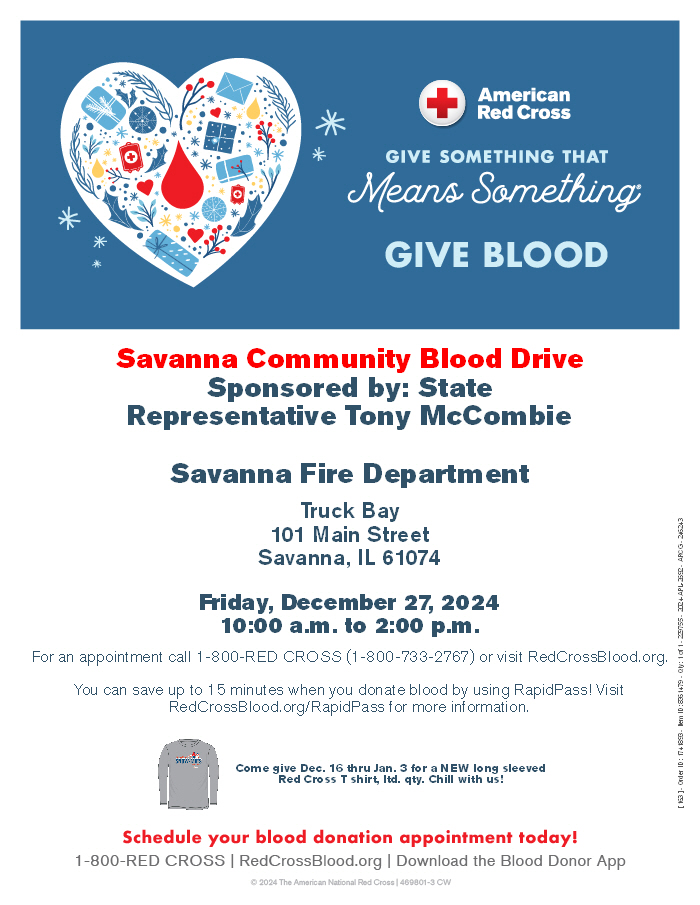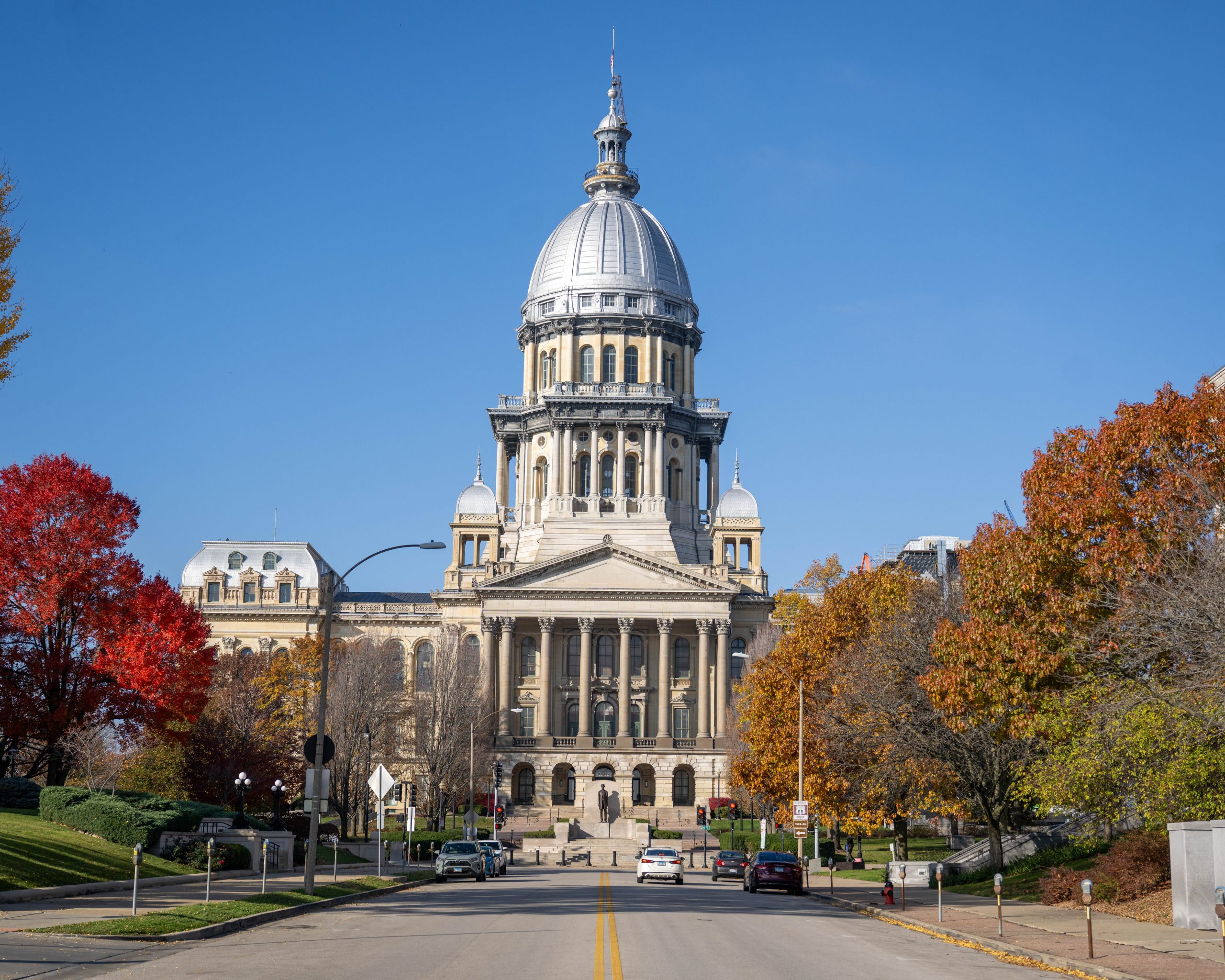GENERAL ASSEMBLY
Illinois General Assembly concludes a quiet veto session. House Republicans took the November 2024 veto session as an opportunity to welcome new lawmakers to the Illinois State Capitol. These included newly elected state representatives who will take the oath of office in the 104th General Assembly in January 2025.
Little legislative action was taken during the recently concluded Veto Session. Governor Pritzker and the Democratic supermajority punted controversial legislative proposals to the January lame-duck session of the current General Assembly.
Following the adjournment of legislative veto session in the Illinois House, I issued the following statement: “We do not need more time for out-of-touch Democrats to dream up harmful legislation. We need bipartisan legislation that focuses on the issues Illinois families care about most. Until the Democrat majority can get their priorities in order, the House Republicans oppose a Lame Duck session.”
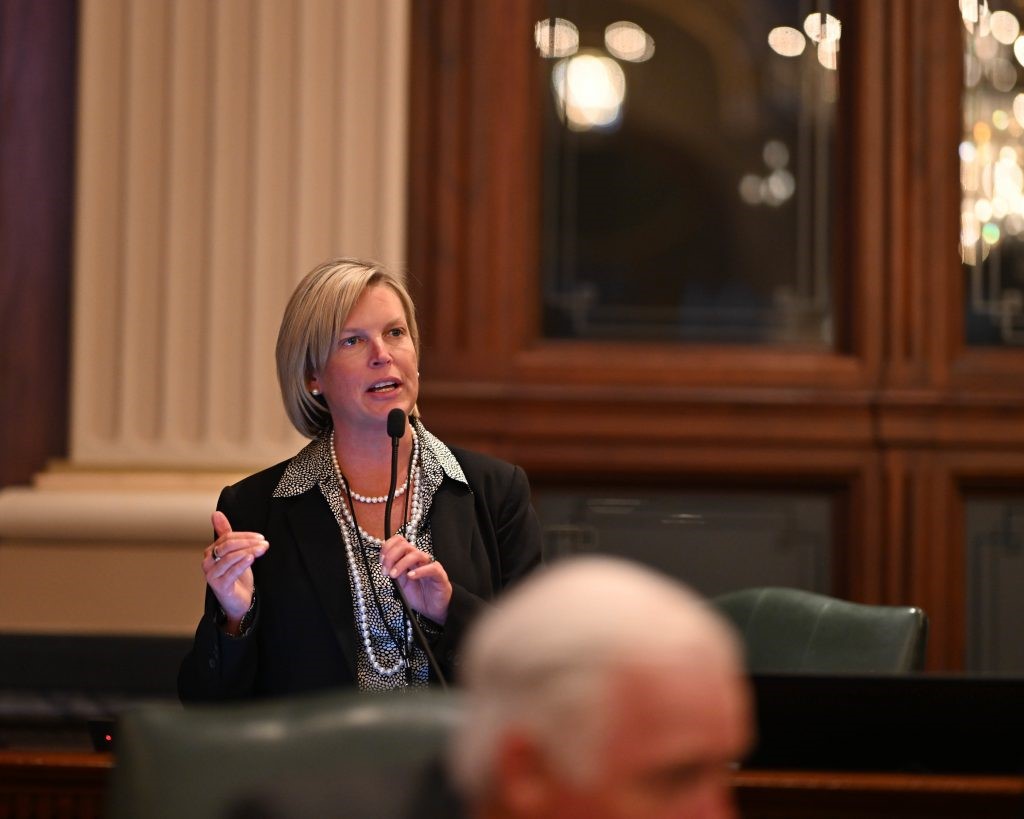
EDUCATION
As we close out American Education Week, we celebrate the power of learning and the incredible educators, students, and families that make it possible. This week serves as a reminder to appreciate the hard work and dedication of teachers, support staff, and administrators who are shaping our next generation of leaders.
With a new administration taking office and a fresh General Assembly ahead, it’s the perfect time to reflect on federal and state education policies. Two key topics come to mind: the proposal to dismantle the U.S. Department of Education and the ongoing discussions around school choice in Illinois.
The idea of abolishing the Department of Education sparks an important question: Have educational outcomes truly improved since its creation in 1979? For many educators and parents, a localized approach to education feels more effective than a national one.
I believe less federal interference would empower local districts to innovate and solve problems with solutions tailored to their communities. The current national approach often stifles creativity, replacing it with a one-size-fits-all model. Moreover, federal funding should be directed to students rather than bureaucracy—provided states use those funds responsibly.
The conversation around school choice reveals a range of perspectives. In rural areas, families are often satisfied with their local schools and the education their children receive. However, in at-risk and low-performing districts, concerns about educational outcomes are both valid and urgent.
If Illinois ever seriously considers school choice legislation, its success will depend on collaboration outside the General Assembly. Implementation, oversight, and funding must ensure equitable access for all students. Lawmakers must recognize that education reform is not a one-size-fits-all solution. Any publicly funded school choice program must balance potential benefits for students with the broader impact on public education to avoid unintended consequences.
For example, Illinois’ Invest in Kids program, which provided tax credit scholarships to low-income students, ended on December 31, 2023. In contrast, Iowa enacted one of the nation’s broadest school choice policies in 2023, allowing funding to follow students regardless of their school choice. Nearby states like Wisconsin, Indiana, and Kentucky also offer lessons on how school choice policies can function.
Wisconsin, for instance, has been a pioneer in school choice, with its Milwaukee Parental Choice Program dating back to 1990. The program provides vouchers for low-income families to attend private schools, with recent expansions allowing middle-income families to participate as well.
Indiana’s Choice Scholarship Program is one of the largest in the country, offering vouchers to families at various income levels, with a focus on expanding access to private schools statewide. Its relatively high participation rates show how broad eligibility criteria can drive engagement.
Kentucky, while newer to school choice, enacted an Education Opportunity Account Program in 2021, allowing tax-credit-funded accounts to help families pay for private school tuition or other education expenses.
These states highlight a variety of approaches Illinois could learn from. While Iowa’s model offers insight into broad implementation, Illinois must craft a solution tailored to its unique challenges and needs. Whether it involves tax credit scholarships, vouchers, or other mechanisms, the goal should be empowering families and improving outcomes without undermining public education.
Education is the foundation of our future. As we chart a path forward, we must prioritize policies that support students, empower educators, and respect the diversity of our communities. By embracing local innovation and thoughtful reforms, we can create an education system that serves every child and strengthens our state.
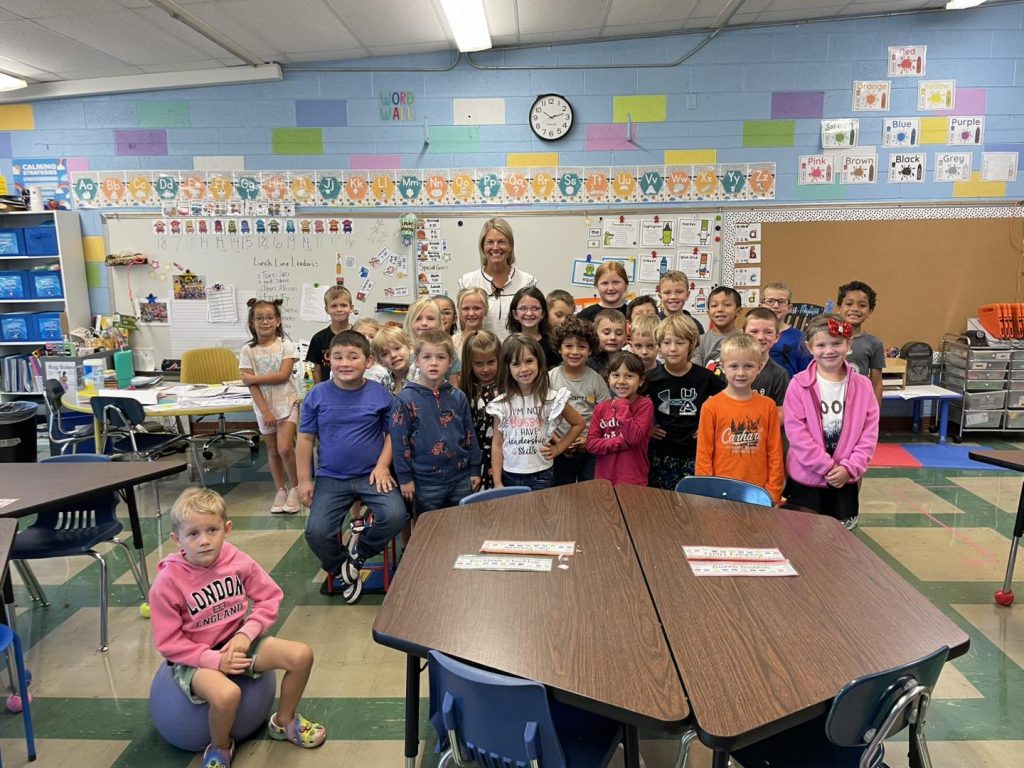
CORRECTIONS
Republican Lawmakers Want Answers on IDOC Drug Exposures. State Representative Charlie Meier joined State Representatives David Friess and Bill Hauter to address growing concerns on harmful substances entering Illinois Department of Corrections facilities across Illinois.
Meier called out IDOC Acting Director Latoya Hughes, who has not yet been confirmed as Director. “I’m calling on Acting Director Hughes to join me at any one of the facilities that have experienced these drug exposures. Together, her and I will go through the mail. If she is confident that the drugs are coming in elsewhere, she should have no problem doing this with me. At the very least, she owes it to the citizens of Illinois to provide some answers and solutions to this issue, preferably through a committee hearing. It’s imperative that this hearing takes place before Acting Director Hughes’ confirmation hearing.”
The prison workers and inmates in Reps. Meier, Friess, and Hauter’s districts are not the only ones who are being exposed. When exposure to these unknown substances occurs, healthcare workers, family members, and other innocent individuals are at risk.
It is essential that we do more! In response to this ongoing issue, I released the following statement:
“Protecting the safety of our correctional officers, staff, and inmates should be a top priority, yet the Illinois Department of Corrections and the Democratic majority continue to ignore critical concerns about dangerous substances entering our prisons. These exposures are putting lives at risk, and we cannot afford to wait. The legislation I’ve co-sponsored, HB 5893, accelerates the rollout of electronic mail systems, a proven solution in other states, to prevent these substances from reaching inmates through physical mail. Illinois needs transparency and decisive action now—not more delays. It’s time for Acting Director Hughes and the Pritzker Administration to step up, address this crisis, and commit to protecting the people in our correctional facilities. Our prison workers and communities deserve leadership that prioritizes their safety.”
FIREARMS
Atty. Gen. Raoul asks appellate court to stay federal ruling striking down firearms ban. The decision by federal District Judge Stephen McGlynn found that the so-called “Protect Illinois Communities Act,” a January 2023 law that purports to ban almost all private-sector possessions of certain groups of firearms and ammunition supplies in Illinois, is unconstitutional. The 168-page decision struck down the law in its entirety, citing various case judgements from the United State Supreme Court and other courts that draw broad boundaries around the “right to bear arms” enshrined in the Second Amendment to the U.S. Constitution.
As with all federal district court decisions in Illinois, the decision can be appealed to the Seventh Circuit of the United States Court of Appeals, the Chicago-based federal appellate court. Illinois Attorney General Kwame Raoul, a Democrat, has filed an appeal. His appeal supports the law and opposes the judicial decision. As a move affiliated with the overall appeals process, the attorney general has also asked that the district court’s permanent injunction against the enforceability of the Protect Illinois Communities Act be stayed. If the appellate court grants the stay, the controversial law will remain in place, for now.
Criticisms of the new Illinois gun ban are widespread. Lawmakers who voted “no” against the new law, which included most Illinois House Republicans, pointed out that the definitions of banned firearms and ammunitions supplies set forth in the new law are vague and potentially unenforceable. They also, like Judge McGlynn, point towards the explicit right to bear arms contained in the federal Bill of Rights, which outranks all State laws.
Attorney General Raoul’s attempt to salvage this unconstitutional firearms ban is a direct assault on our Second Amendment rights. The federal court’s decision affirms what we have long said—this law is an overreach that punishes law-abiding citizens while doing nothing to address crime. Illinoisans deserve policies that protect their freedoms, not political stunts that trample on their constitutional rights. House Republicans will continue to stand firm against government overreach and fight to uphold the principles enshrined in our Constitution.
OUTDOOR RECREATION – BBD
Firearm Deer Season Opened Friday in Illinois. Deer hunters in Illinois were busy this weekend, as firearm hunting season began Friday and ran through Sunday, November 24. A second round of firearm deer hunting will be coming in two weeks, from December 5 through 8.
During Firearm Season, hunters can use shotguns, muzzleloaders, handguns, and centerfire rifles. Vertical, traditional, and crossbows can also be used, but only on private property. Hunters also must adhere to clothing requirements, which call for a solid blaze orange or blaze pink hat and an outer garment that displays at least 400 square inches of orange or blaze pink material. Hunting hours during this period are one-half hour before sunrise to one-half hour after sunset. Hunters must also have proper deer permits and a valid hunting license. The bag limit is one deer per hunter, and over a 12-month period that begins on July 1, no hunter may harvest more than two antlered deer. Upon killing a deer, hunters must adhere to reporting/registering guidelines as outlined by the IDNR. Find license and permit information here.
Congrats to all across Illinois! From here at home in northwest Illinois to the southern parts of our state… it was a great weekend:
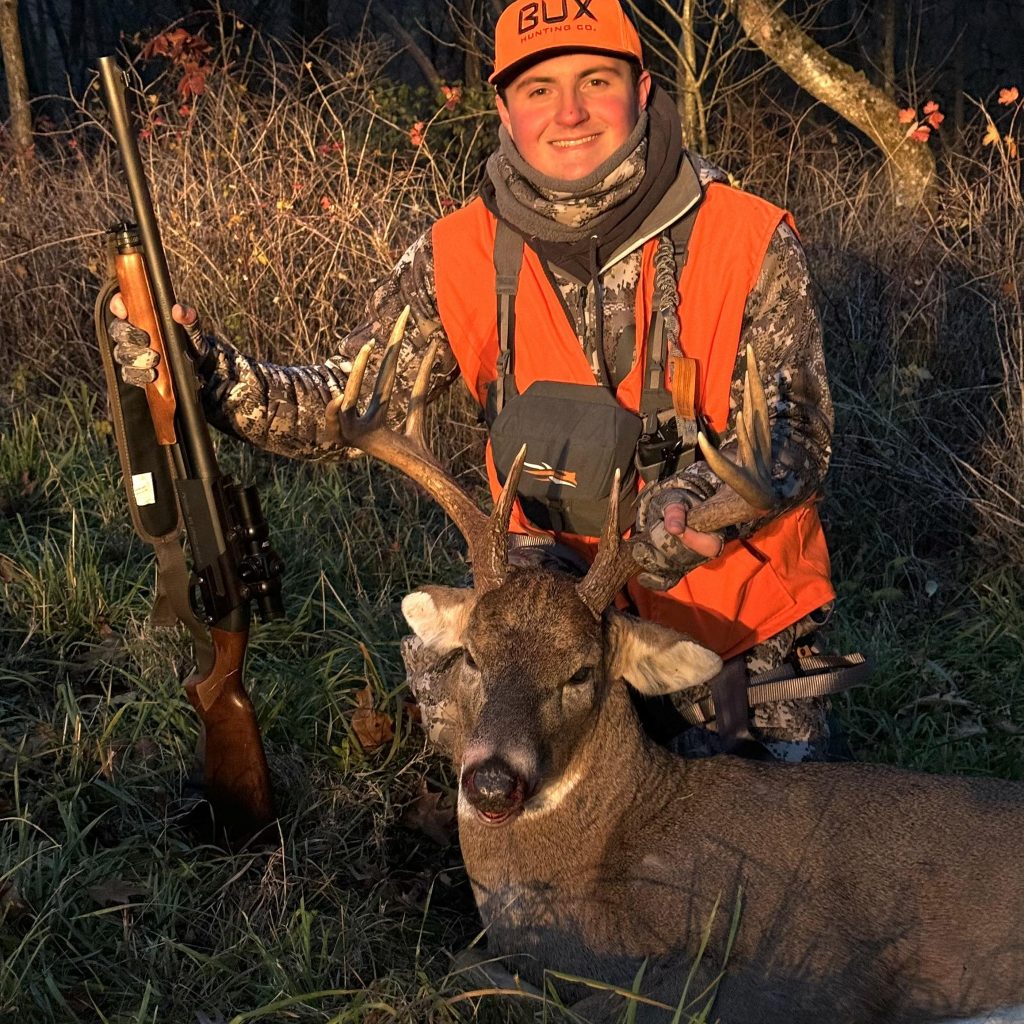
REMINDER: BLOOD DRIVE COMING NEXT MONTH
I am hosting an upcoming blood drive event with the City of Savanna and the Savanna Fire Department. The Savanna Community Blood Drive will be held on December 27th.
